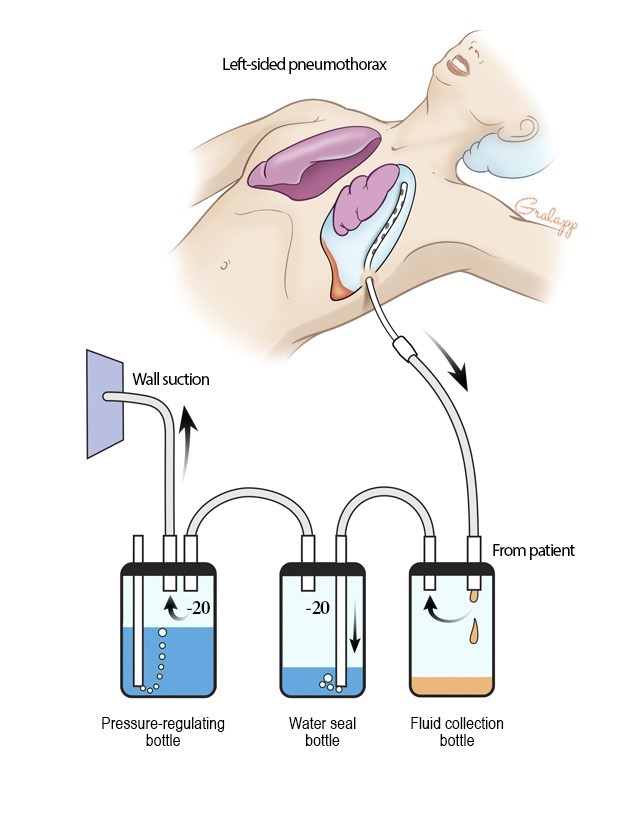A nurse is reviewing the medical record for a child who is scheduled to receive a varicella immunization. Which of the following findings in the client's record should the nurse recognize as a contraindication?
Chemotherapy treatments
Medications for a cardiac anomaly
Clear rhinorrhea
Two diarrhea stools in the last day
The Correct Answer is A
Chemotherapy treatments, which are used to treat cancer, can suppress the immune system and weaken the body's ability to respond to vaccines. As a result, receiving a live attenuated vaccine like the varicella immunization can pose a risk of severe complications for individuals undergoing chemotherapy. Therefore, it is contraindicated to administer the varicella vaccine in this case.
Medications for a cardiac anomaly, clear rhinorrhea, and two diarrhea stools in the last day are not contraindications for receiving a varicella immunization.
While medications for a cardiac anomaly and certain medical conditions may require special consideration or precautions when administering vaccines, they are not absolute contraindications for the varicella vaccine. The decision to administer the vaccine would depend on the individual's specific circumstances and the healthcare provider's assessment. Clear rhinorrhea (runny nose) and two diarrhea stools in the last day are considered minor illnesses and do not contraindicate the varicella vaccine. Generally, mild illnesses without fever or systemic symptoms do not pose a significant risk when receiving vaccines. However, it is always important to assess the overall health status of the individual and consult with a healthcare provider if there are concerns.
Nursing Test Bank
Naxlex Comprehensive Predictor Exams
Related Questions
Correct Answer is D
Explanation
The nurse should intervene when the AP raises all four side-rails on the client's bed. While it is important to ensure the client's safety and minimize the risk of falls, raising all four side-rails can be considered a restraint and may not be the best practice for fall prevention. The use of physical restraints, including all four side-rails, can lead to adverse outcomes such as entrapment, increased agitation, and decreased mobility.
Locking the wheels on the client's bed: This is an appropriate action to prevent the bed from rolling and ensures stability.
Clearing furniture from the path leading to the bathroom: This is a good practice as it creates a clear and safe path for the client to walk without obstacles.
Assisting the client to the bathroom every 2 hours: This is a proactive measure to prevent falls by ensuring regular toileting and minimizing the need for the client to get up and move independently.
It's important to promote mobility and independence for the client while ensuring their safety.
Correct Answer is A
Explanation
Ensuring the device is kept below the level of the client's chest is important to ensure that the drainage system functions properly by allowing the fluid and air to flow downhill. Placing the device below the level of the chest helps facilitate gravity drainage.

Continuous suction is required for proper functioning of the chest tube drainage system. Clamping the chest tube can disrupt the suction and impede the removal of air or fluid from the pleural space. Only in specific circumstances, such as when changing the drainage system or assessing for air leaks, may the healthcare provider request a temporary clamping of the chest tube.
Positioning the client semi-Fowler's, with the head of the bed elevated, can help promote lung expansion and improve oxygenation. The specific positioning may vary depending on the client's condition and the healthcare provider's recommendations.
The nurse should empty the collection chamber as per the facility's protocol, which typically includes monitoring the drainage and emptying it when it reaches a certain level. Regular emptying of the collection chamber helps maintain proper functioning of the chest tube system and allows for accurate measurement of drainage output.
Whether you are a student looking to ace your exams or a practicing nurse seeking to enhance your expertise , our nursing education contents will empower you with the confidence and competence to make a difference in the lives of patients and become a respected leader in the healthcare field.
Visit Naxlex, invest in your future and unlock endless possibilities with our unparalleled nursing education contents today
Report Wrong Answer on the Current Question
Do you disagree with the answer? If yes, what is your expected answer? Explain.
Kindly be descriptive with the issue you are facing.
